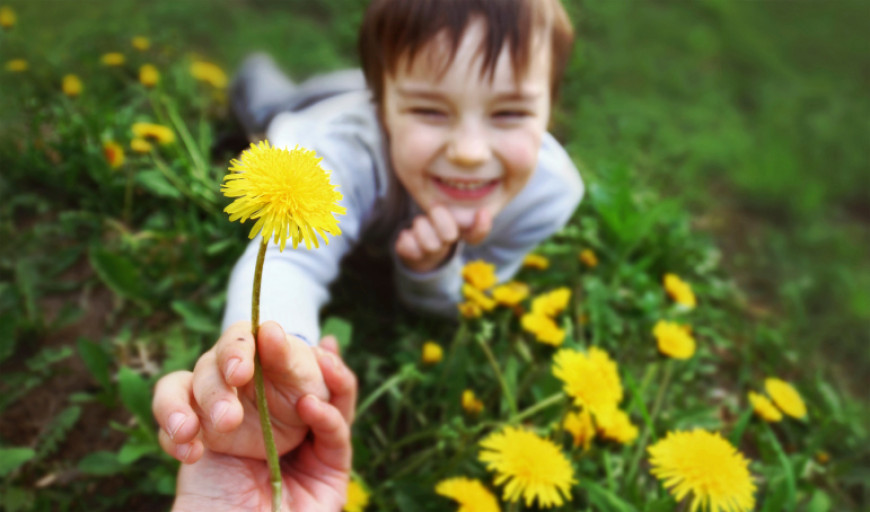Time Required
This practice can take as little as 5 minutes.
How to Do It
From a very young age, children start learning how to collaborate and what it means to make commitments to others. Even as early as toddlerhood, children have expectations of their peers to stick around and cooperate when they’re engaged in a collaborative game or activity.
It turns out that the way we talk to children can influence their feelings around collaboration and about each other.
When you invite multiple children to participate in an activity—even when they’ve just met one another—replace “you” language with “we” language. For example, rather than saying something like “What game do you want to play?” or “You are going to help decorate for your friend’s party,” try saying something like this: “We are going to help decorate for our friend’s party” or “It’s time for us to play a fun game! What do we think we should play?”
This subtle shift in language can help kids feel more committed to each other when they’re doing activities together, setting a good foundation for collaboration and cooperation.
Why You Should Try It
Collaboration can be hard for kids (and adults). Working together to get something done involves navigating different perspectives and priorities. Kids can be reluctant to engage in cooperative activities because they want to avoid disagreements and arguments with others.
Using “we” language can help your child have positive collaborative experiences, which heightens their awareness of their own capacity to work and play with others. They can learn how to resolve conflicts and work cooperatively rather than competitively, which can help them make progress toward both their shared and personal goals.
Positive cooperative interactions can also help other children view your child as a committed partner or teammate whom they can rely on. While the strength of friendships depends on many factors, cooperation is an important part of being able to make and keep friends during childhood.
Why It Works
When you speak with your child, your choice of pronouns can induce different effects. When you highlight for children a sense of “we”-ness, they can feel a stronger connection to one another.
Using “we” can also foster in children a greater sense of acting together on the same shared goal—being a partner on a team. On the other hand, using “you” can invoke in children a sense of acting independently or in parallel with someone. Research suggests this effect happens in adults, too, with “we” framing spurring team reasoning—it can help us switch from thinking as an individual to identifying with a larger group.
Evidence That It Works
Vasil, J., & Tomasello, M. (2022). Effects of “we”-framing on young children’s commitment, sharing, and helping. Journal of Experimental Child Psychology, 214, 105278.
Preschoolers between three and four years old were randomly assigned to one of two collaborative play activities with an Eeyore puppet: One activity involved Eeyore talking to the child using first-person plural pronouns (e.g., “Some friends are going to have a party later. They want help decorating for the party. So, we are going to help decorate. We can help decorate by decorating this colorful paper…”). In the other activity, Eeyore used second-person singular pronouns (e.g., “you” and “your”) rather than “we” and “our.” The study found that children who heard “we” language felt a greater sense of commitment to their puppet partner compared to those who heard “you” language.
Sources
Jared Vasil, Duke University
Michael Tomasello, Ph.D., Duke University and Max Planck Institute for Evolutionary Anthropology







Comments
and Reviews
The Greater Good Toolkit
Made in collaboration with Holstee, this tookit includes 30 science-based practices for a meaningful life.
The Greater Good Toolkit
Made in collaboration with Holstee, this tookit includes 30 science-based practices for a meaningful life.